Textiles from Chiapas serve as a vibrant canvas, reflecting the region’s rich cultural tapestry and deep-seated mysticism. Each piece, meticulously crafted by skilled artisans, showcases intricate designs laden with spiritual meanings that resonate with themes of nature and community. These textiles do more than adorn; they embody the stories and identities of the weavers, particularly the women who carry on these traditions. As one explores the significance behind these creations, questions arise about the ancient beliefs that inspire them and the ways they connect to contemporary life in Chiapas.
Key Points
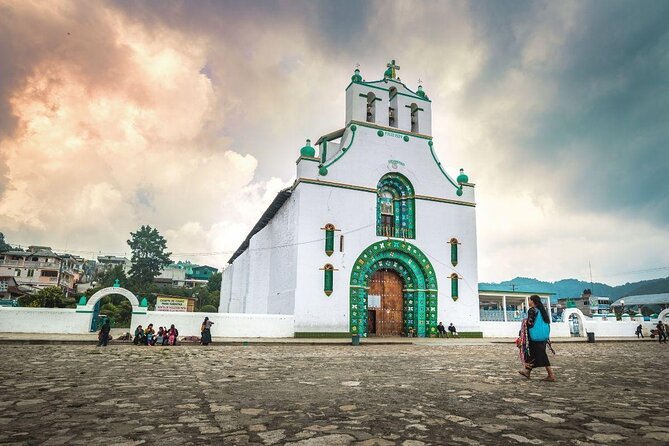
- Textiles in Chiapas incorporate mystical symbols that reflect spiritual beliefs, connecting the weaver to nature and cultural identity.
- Vibrant colors used in textiles symbolize life, vitality, and community values, enhancing the mystical narrative of each piece.
- Geometric shapes in designs signify interconnectedness and the relationship between the individual and the universe, deepening the cultural significance.
- Each textile serves as a storytelling medium, conveying themes of fertility, protection, and nature through intricate designs.
- The craftsmanship of Mayan women ensures that these mystical elements are preserved, passed down generations, maintaining cultural heritage.
Cultural Significance of Textiles
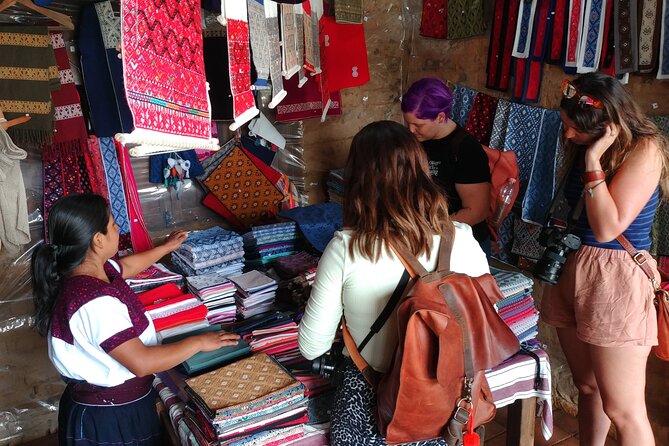
Textiles hold profound cultural significance in Chiapas, serving as a vibrant expression of the region’s rich heritage. For the indigenous communities, these fabrics represent more than mere clothing; they embody identity, tradition, and history.
Each color and pattern tells a story, reflecting the wearer’s community, beliefs, and even social status. Artisans often pass down weaving techniques through generations, preserving their ancestral knowledge.
Festivals and ceremonies frequently showcase these textiles, reinforcing their role in communal life. On top of that, textiles act as a bridge for cultural exchange, inviting outsiders to appreciate the intricate artistry and symbolism.
In Chiapas, the act of weaving transcends craft, becoming a vital connection to the past and a celebration of cultural pride.
You can also read our reviews of more tours and experiences in San Cristobal de las Casas.
Weaving Techniques in Chiapas
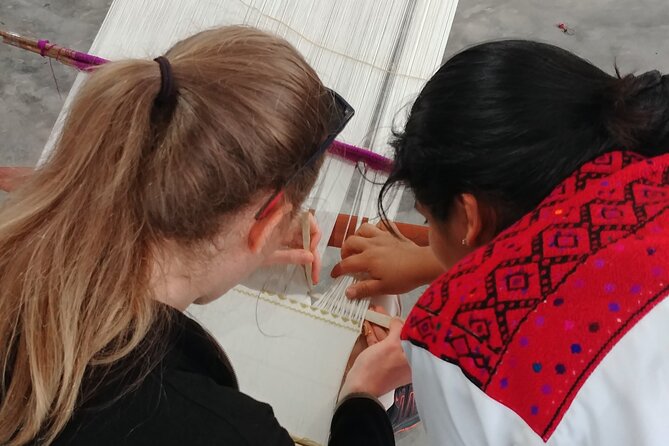
Utilizing ancient techniques passed down through generations, artisans in Chiapas create stunning weavings that reflect their cultural heritage and identity.
These skilled weavers often employ the backstrap loom, a method that allows for intricate designs and vibrant colors. Each piece tells a story, combining traditional patterns with personal touches unique to the artisan.
The process requires patience and precision, as artisans meticulously intertwine threads to bring their visions to life. Many weavers incorporate natural dyes from local plants, enhancing the connection to their environment.
This dedication not only preserves centuries-old traditions but also promotes sustainable practices. Through their craft, Chiapas artisans celebrate their history while contributing to the rich tapestry of Mexican culture.
The Role of Mayan Women
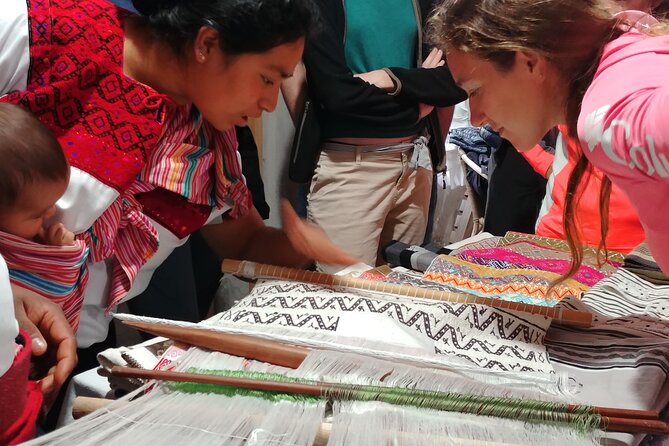
Mayan women’s contributions to the cultural and economic fabric of Chiapas are both profound and multifaceted. They are the backbone of traditional weaving, preserving ancient techniques while infusing their personal stories into each piece. These skilled artisans not only create textiles but also foster community ties and cultural identity.
| Aspect | Contribution | Impact |
|---|---|---|
| Weaving Techniques | Mastery of backstrap loom | Cultural preservation |
| Economic Empowerment | Income generation | Improved family welfare |
| Cultural Education | Teaching children | Continuation of traditions |
| Community Leadership | Organizing cooperatives | Strengthened community bonds |
| Preservation of Language | Incorporating symbols | Retention of heritage |
Through their artistry, Mayan women ensure that the rich tapestry of Chiapas continues to thrive and resonate.
Mystical Elements in Designs
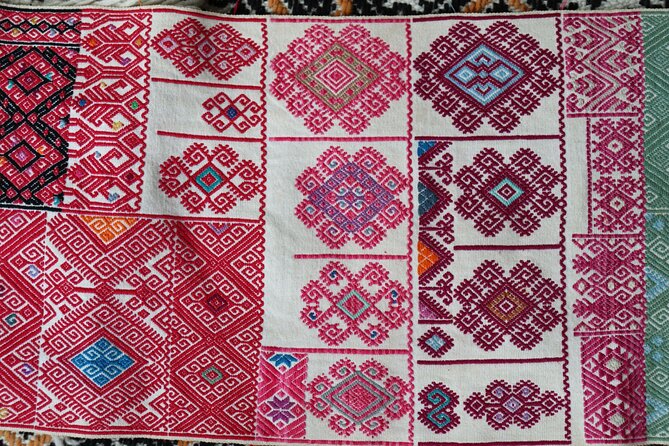
Embodying rich cultural narratives, the intricate designs of Chiapas textiles often reflect mystical elements deeply rooted in the region’s spiritual beliefs.
Indigenous weavers incorporate symbols that convey themes of nature, fertility, and protection, drawing inspiration from their environment and ancestral traditions. Colors and patterns serve as visual language, representing stories passed down through generations.
For instance, the use of vibrant reds and greens might symbolize life and vitality, while geometric shapes can signify the interconnectedness of all living things.
Each textile tells a unique tale, inviting viewers to explore the mystical relationship between the weaver, their craft, and the sacred beliefs that shape their world.
These elements transform simple fabric into profound expressions of cultural identity and spirituality.
Local Markets and Craftsmanship
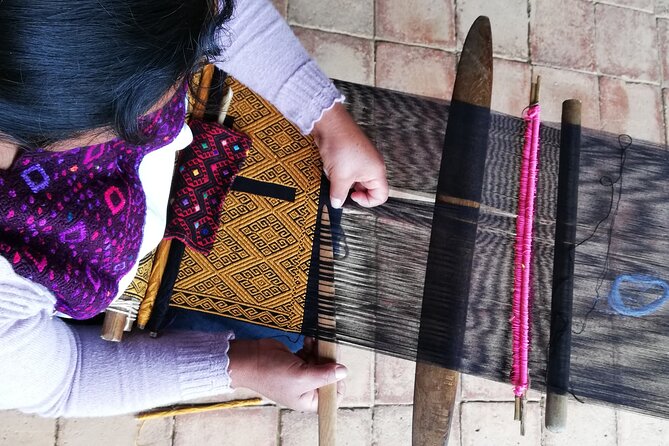
Visiting the local markets in Chiapas is a vibrant experience that immerses travelers in the region’s rich craftsmanship.
Colorful stalls brim with textiles, handmade by skilled artisans who pour their heritage into every piece. From intricate embroidered blouses to vibrant woven rugs, each item tells a story of tradition and creativity.
Local markets buzz with life, as shoppers haggle over unique goods while listening to the melodic sounds of indigenous languages floating through the air.
Visitors can engage with the artisans, learning about their techniques and the cultural significance behind their work.
This direct connection fosters appreciation for the craftsmanship that defines Chiapas, making each purchase not just a transaction, but a meaningful piece of the region’s heritage.
- San Cristobal: Ecotourism Center Las Nubes Adventure
- San Cristóbal: Agua Azul, Misol Ha & Palenque Experience
- San Cristóbal: Amatenango, Chiflon, and Montebello Tour
- San Cristobal De Las Casas: Time Arch 2-Day Expedition
- San Cristobal: Sima De Las Cotorras and Cascada El Aguacero
- San Cristobal: Sima De Las Cotorras & Aguacero Waterfalls
Culinary Delights of Chiapas
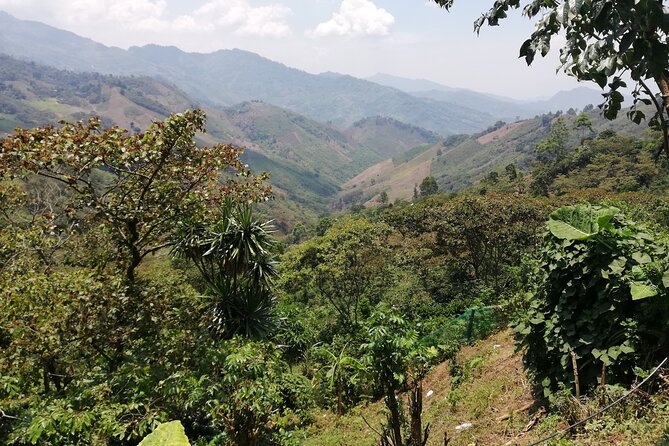
Chiapas offers a feast for the senses, with its rich culinary landscape reflecting the same vibrant culture found in its local markets. Traditional dishes, like tamales and mole, showcase local ingredients such as corn, beans, and fresh vegetables.
The region’s unique flavors often come from indigenous recipes passed down through generations, blending ancient techniques with modern tastes. Street vendors entice passersby with the aroma of freshly made quesadillas and spicy salsas, while local restaurants serve up hearty, comforting meals that warm the soul.
Chiapas is also known for its coffee, which ranks among the best in the world, inviting visitors to savor every sip. Each bite and sip tells a story, connecting people to the land and its rich heritage.
Engaging With Native Communities
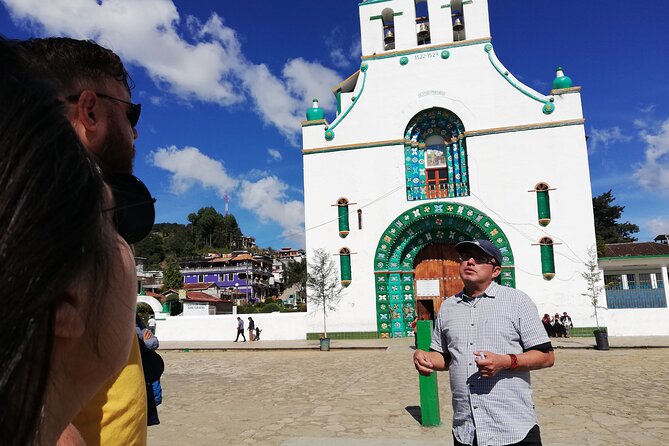
In the heart of Chiapas, travelers find themselves immersed in the vibrant cultures of native communities, where traditions flourish and stories come alive.
Interacting with local weavers, they gain firsthand insight into the intricate art of textile making, learning about the techniques passed down through generations. Engaging with these artisans not only enriches their understanding of the craft but also fosters a deep appreciation for the cultural significance behind each piece.
Visitors often share meals with families, experiencing the warmth and hospitality of the Mayan people. Guided by knowledgeable locals, they explore chapels and markets, discovering the rich tapestry of Chiapas’ heritage.
This engagement creates lasting memories, bridging gaps between cultures and celebrating the beauty of community.
Tips for Travelers to Chiapas
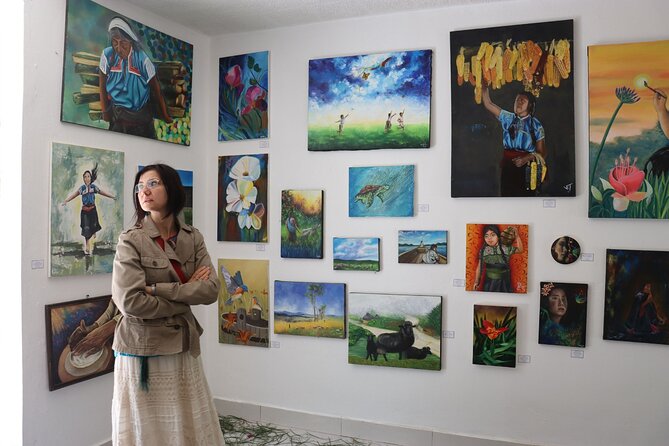
Before embarking on an adventure in Chiapas, travelers should prepare themselves for the unique cultural and environmental landscape that awaits. It’s essential to pack wisely and respect local customs. Here are some helpful tips:
| Tip | Description |
|---|---|
| Dress Appropriately | Wear comfortable, breathable clothing suitable for warm weather. |
| Learn Basic Spanish | Knowing a few key phrases can enhance interactions with locals. |
| Stay Hydrated | Carry water and stay hydrated, especially while exploring. |
Travelers should also consider participating in local tours, like the "Textiles and Mysticism of Chiapas," to enjoy the rich culture. Engaging with local communities will make the experience even more memorable!
Frequently Asked Questions
What Is the Maximum Group Size for the Tour?
The maximum group size for the tour is four travelers. This intimate setting allows participants to engage more personally with the experience, fostering deeper connections with the local culture and enhancing the overall journey.
Where Is the Meeting Point for the Tour?
The meeting point for the tour is at Quiosco Central Park, located in Zona Centro, San Cristóbal de las Casas, Mexico. Travelers gather there at 09:00 AM for an exciting cultural adventure.
Are Infants Allowed on the Tour?
Infants are allowed on the tour, but they must sit on laps during the experience. This policy ensures safety and comfort for all participants, making it accessible for families wanting to enjoy the adventure together.
What Is the Cancellation Policy for the Tour?
The cancellation policy allows travelers to cancel for free or reschedule without limits up to 24 hours before the tour starts. This flexibility ensures peace of mind for those planning their adventures.
How Can I Confirm My Booking?
To confirm their booking, travelers receive a confirmation at the time of booking. If it’s within five days of travel, they’ll get it within 48 hours, subject to availability.
The Sum Up
To sum it up, Chiapas textiles are a vibrant blend of artistry and mysticism, deeply rooted in the region’s cultural identity. The intricate designs, woven with care by skilled artisans, carry stories of the land and its ancient beliefs. By engaging with local communities and exploring these unique creations, travelers not only gain insight into the rich heritage of Chiapas but also support the preservation of its traditions. Embracing this tapestry of culture is a journey worth taking.
More Tour Reviews in San Cristobal de las Casas
- San Cristóbal: Las Nubes Waterfall & Comitán Tour
- From San Cristóbal: Agua Azul and Palenque Day Trip
- San Cristobal:Palenque,Agua Azul,and Misol-Ha English Guide
- Palenque: Lacandona Jungle Path – Ecotourism Adventure
- Chiapas Highlands: Ancient Rituals and Traditions Tour
- El Chiflón Waterfalls and Montebello Lagoons Day Trip
Not for you? Here's more nearby things to do in San Cristobal de las Casas we have reviewed
- San Cristóbal: Las Nubes Waterfall & Comitán Tour
- From San Cristóbal: Agua Azul and Palenque Day Trip
- San Cristobal:Palenque,Agua Azul,and Misol-Ha English Guide
- Palenque: Lacandona Jungle Path – Ecotourism Adventure
- Chiapas Highlands: Ancient Rituals and Traditions Tour
- El Chiflón Waterfalls and Montebello Lagoons Day Trip
- Tour of Agua Azul Waterfalls, Misol-Ha Waterfall, and the Archaeological Zone of Palenque.
- Private Personalized Tour of San Cristobal De Las Casas
- Chiapa De Corzo: Tradition, Gastronomy, and Sumidero Canyon
- Rancho Nuevo Caves and Arcotete Ecotourism Center
- Montebello Lakes and Waterfalls Tour From San Cristobal
- San Juan Chamula and Zinacantán Indigenous Communities
